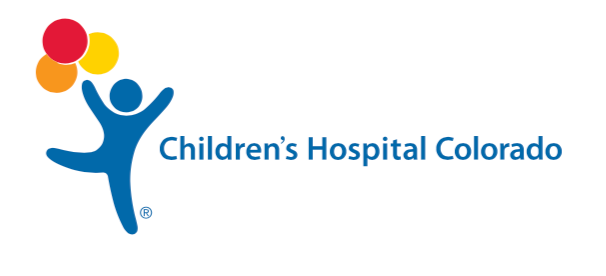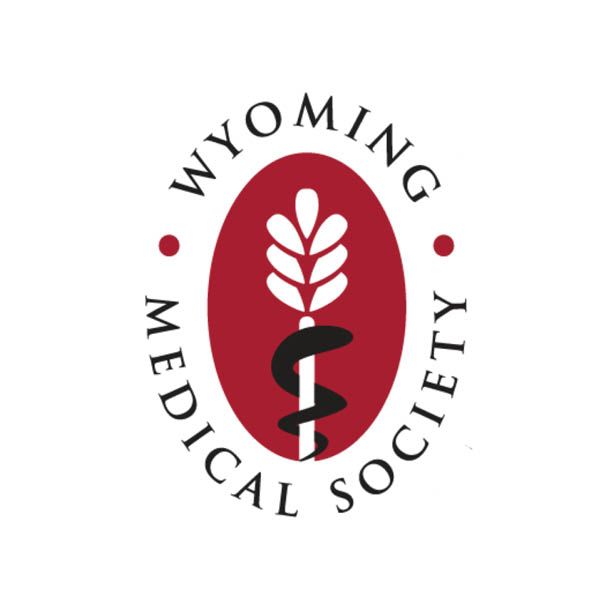
How to Support Neurodivergent Kids
How to Support Neurodivergent Kids: A Parents Guide to Neurodiversity
Content brought to you by Children's Hospital Colorado
If it seems like the idea of neurodiversity only recently went mainstream, that’s because it did. The term was first coined by Australian sociologist Judy Singer in 1998 to highlight one essential truth: No two human minds are exactly alike. Driven by the autism community’s self-advocacy in the early 1990s, Singer imagined a new movement where people with autism spectrum disorder (ASD), attention deficit/hyperactivity disorder (ADHD) and other conditions could come together to advocate for their common interests.
Neurodiversity itself is not a medical diagnosis. It’s an umbrella term that encompasses a range of neurodevelopmental disabilities and other conditions that impact brain function. The term has gained widespread use as an identifier for people of all ages. According to research published in the British Medical Bulletin, approximately 15% to 20% of people globally are considered neurodiverse.
But what is neurodiversity, exactly? And how can caregivers recognize if their child is neurodivergent? Our pediatric experts share everything you need to know about neurodiversity, including tips on how to support a neurodivergent child.
What does it mean to be neurodivergent?
Put simply: “It's just saying, the way you approach things, the way you think, is different,” says Sandra Friedman, MD, an expert in developmental pediatrics at Children’s Hospital Colorado. But just because a person’s brain works differently doesn’t mean it’s “bad” or “wrong.” In fact, it’s just the opposite. Neurodiversity is a celebration of the fact that no two brains — or people — are alike.
“Neurodivergence is a form of human diversity,” says Julia Barnes, PhD, a child and adolescent psychologist at the Pediatric Mental Health Institute at Children's Hospital Colorado. “Just like there's no normal, correct or superior race, gender, ethnicity or culture, there's no one normal, right or superior type of brain.”
Neurotypical, on the other hand, broadly refers to people who are not neurodivergent. Their brain functions and behaviors are often considered the norm in our society, and as such, our environments, like schools and workplaces, tend to accommodate this group of people. That’s part of the reason that the neurodiversity movement exists — to shift perspectives about what is considered “normal.”
Instead of focusing on “dysfunctions” or “deficits,” neurodiversity encourages tapping into a person’s unique strengths to fill in the gaps and help them adapt to their environment, whether that's school, social settings or at work. Oftentimes, people who are neurodiverse need special accommodations to help them succeed. For kids in the classroom, this could mean allowing noise-canceling headphones, providing more opportunities for movement or extra time for test-taking and other changes to the classroom environment.
What conditions fall under the term “neurodiversity”?
Because neurodiversity is not a medical diagnosis, there is not one definitive list of conditions that are included under this umbrella term. Typically, individuals who identify as neurodiverse may have one or more of the following diagnoses:
- Autism spectrum disorder
- Attention deficit/hyperactivity disorder
- Learning disabilities, such as dyslexia, dyscalculia, dysgraphia and dyspraxia
- Tourette syndrome and other tic disorders
- Sensory processing issues
People who have certain mental health conditions, such as bipolar disorder, obsessive-compulsive disorder and anxiety disorders, or intellectual disability such as Down syndrome might also identify as neurodiverse.
It's common for neurodivergent people to have co-occurring conditions, or more than one diagnosis. Also, Dr. Barnes says that as a child grows up and faces new challenges, it’s possible that their initial diagnosis might change, or they might receive additional diagnoses.
How can I tell if my child is neurodivergent?
Like many things in parenting, it often starts with a gut feeling. "Red flags are probably going to go up in any parent's heart when they recognize that their child isn't thriving in a way that they expected or hoped,” says Dr. Barnes. While some signs might be apparent when a child is as young as 9 to 12 months old, such as not making eye contact or responding to their name, many parents first recognize concerns in social settings when their child is in preschool or kindergarten. Is your child making friends or getting along with other kids on the playground? At home, you might notice that your child isn’t picking up on social norms, is lacking empathy or has a hard time understanding or managing their emotions.
As a child begins navigating the demands of school, a caregiver or teacher might note that they’re not performing well academically, are easily distracted, are noticeably distressed or simply acting differently than neurotypical children. “If a child is just not clicking with their environment, then I think it's totally reasonable to have them evaluated to figure out what this kiddo needs to help them thrive in school,” Barnes says.
My child has sensory processing issues. Does that mean they’re neurodivergent?
Not necessarily. Many children, but not all, who are diagnosed with autism spectrum disorder and ADHD experience some sensory difficulties. This means that they are over-responsive (hypersensitive) or under-responsive (hyposensitive) to sensory stimulation, such as bright overhead lights or loud street noises. Oftentimes, a child might be hypersensitive in one area, but hyposensitive in another. Sensory processing challenges can impact a child’s five senses — sight, hearing, touch, smell or taste — as well as their balance and coordination (vestibular), external body awareness (proprioception) and internal cues and signals (interoception).
Children with sensory processing sensitivities showcase a wide range of reactions and behaviors that can be confusing for parents. Some of these behaviors include:
- Excessive movement, including running, jumping, spinning or purposely crashing into things
- Hand-flapping or rocking back and forth
- Covering ears or eyes to reduce external stimuli
- Frequent touching or discomfort with being touched
- Dislike of certain items of clothing or textures (or even tags or seams inside of clothing)
- Meltdowns in response to disliked sensory stimulation
What should I do if I think my child might be neurodivergent?
Our experts always recommend starting with your child’s primary care provider. Autism and ADHD can have similar characteristics and also regularly occur together, so it is always important to bring your concerns to a trusted medical professional for discussion and evaluation.
Screening for neurodiverse conditions
If your child is still young, your provider should be regularly tracking their general development at their well-child visits through the Ages and Stages Questionnaires. If your child is between 16 and 30 months of age and you think they should be screened for autism, you can request an M-CHAT evaluation, or Modified Checklist for Autism in Toddlers. For older children, you can ask for a CAST screening, or Childhood Autism Spectrum Test.
Screenings for ADHD can vary by provider and a child’s symptoms, but often includes a combination of interviews with caregivers and teachers, reviews of school and medical records, vision and hearing screenings and observation time with the child. For more information and additional resources, check out Children and Adults with Attention-Deficit/Hyperactivity Disorder (CHADD).
Make sure you come to your appointment prepared with notes about behaviors or challenges that you and other caregivers or teachers have noticed. Your provider should be able to initially evaluate your child in their office before referring you to specialists for further evaluation and discussion.
At what age are children typically diagnosed with one of these conditions?
It depends on the child and the condition. Dr. Barnes says children can be diagnosed with autism before they reach preschool, with some signs being detected by 18 months old in some children. According to the Centers for Disease Control and Prevention’s Autism and Developmental Disabilities Monitoring (ADDM) report, children are diagnosed on average at about 4 years of age. In other cases, a child might effectively adapt to their environment up to a certain point in time, until the gap between their skills and the expectations of their environment widens too far. This often happens around middle school, when the social environment becomes more complex and the schoolwork is more challenging. In general, the earlier the diagnosis is made and services begin, the better the outcomes.
Other conditions, like ADHD and learning disabilities, typically become apparent after a child starts school, although ADHD can be diagnosed in preschool. While some behaviors associated with these conditions might be noticeable at a younger age, such as hyperactivity or difficulty recognizing letters or numbers, they might initially be dismissed as developmentally appropriate. If these concerns persist, seek out an evaluation.
How can parents support their neurodivergent child?
Every child is different, so the support that one child needs might differ from what another kid needs. Dr. Friedman says it’s important for parents to work with their providers to get the right screenings and ask plenty of questions to help them understand both the diagnosis and the provider’s recommended treatments and therapies. “Parents know their children better than anyone, so they should not be reluctant to ask questions and express their concerns and opinions,” she says. While some parents feel relieved to get an official diagnosis for their child, Dr. Friedman says it can take years for others to come to terms with it. Both reactions are totally normal.
How to advocate for your neurodivergent child
It’s crucial that caregivers advocate for their child to ensure they're getting the support they need, both in healthcare and educational settings. Just because a child has a medical diagnosis of a certain condition doesn’t mean they’ll automatically receive the support they need at school. Oftentimes, a child will need to undergo additional screening at their school to be considered for an Individualized Education Plan (IEP) or 504 education plan, which allows for accommodations to help them succeed in the classroom.
Supporting your neurodivergent child at home and in school
At home, parents can support their neurodivergent child by giving them a safe space to be themselves and meeting their unique needs, whatever that might mean. Give them plenty of time to explore their interests and plan activities that suit their sensory preferences. For example, if you know your kid needs plenty of physical play, designate an area where they can run, jump, spin or wrestle without harming themselves or others. If your child has sensitivities to light or sound, consider using dimmable lightbulbs or limiting how loudly you play music or the television. In school or social settings, you might decide to send packed lunches or bring your child’s preferred foods so they feel more comfortable. You can also work with your child’s teacher to see if your child can utilize a fidget toy during class to help them concentrate or wear earplugs or headphones to reduce noise.
In general, Dr. Friedman recommends that parents not focus on a child’s unique challenges, but instead recognize their strengths. Work with your child’s care team and teachers to determine how those positive attributes can boost the areas that need further development.
What treatments and therapies are available for neurodivergent children?
Your provider’s recommended treatments and therapies will depend on your child’s unique needs. For some conditions, like ADHD, a combination of medication and behavioral therapy can improve your child’s symptoms and allow them to function more effectively. Your provider might also recommend parent training to help caregivers manage their kid’s behavior. Many children and teens with learning disabilities may benefit from additional tutoring, occupational therapy or speech-language therapy, or by accessing various resources in the classroom.
Support for children with autism
For kids with autism, treatment plans are always tailored to an individual’s specific needs and any other conditions they may have. A doctor might recommend applied behavioral analysis (ABA), occupational therapy or speech-language therapy or other treatments. Your provider might also recommend medications to ease some of the challenging behaviors associated with autism. If you’re unsure whether to add medication to your child’s care plan, Dr. Friedman recommends Autism Speaks’ Medication Decision Aid to help guide you.
Children with autism are also more likely to have other medical or mental health conditions that could require treatment, such as:
- Epilepsy: One-third of people with autism have this seizure disorder.
- Stomach issues: Constipation, acid reflux, bowel inflammation and abdominal pain are nearly eight times more common in children with autism.
- Sleep issues: Over half of children with autism experience disrupted sleep.
- ADHD: Up to 60% of people with autism have ADHD.
- Anxiety: 42% of people with autism experience anxiety.
Is it OK if my child or young adult self-identifies as neurodivergent?
How a person identifies is deeply personal. As children get older, they might decide to adopt “neurodivergent” or “neurodiverse” as identifiers, or they may shy away from these terms altogether. Similarly, someone might prefer to use person-first language to identify themselves, such as “a person with autism,” while others might identify as an “autistic person” or “neurodiverse individual.” Some people may choose to adopt no labels that recognize their diagnosis. It’s also possible that the way a person identifies may change over time. That’s why Dr. Friedman recommends asking your child what their preference is and never assuming.
Research has shown that children start developing self-awareness by the age of 2 and can recognize differences in themselves and their peers by age 5. Many kids who are diagnosed with neurodevelopmental conditions already know they think or function differently.
How to talk to a neurodivergent child about their condition
When talking to your child about their diagnosis, it’s important to stay positive and highlight their unique strengths, as well as their challenges. Point out that everyone has areas where they struggle or succeed, and that by knowing more about how their brain functions, you will be able to get them the resources they need.
Remember: When a child feels secure in their self-identity, it strengthens their confidence and sense of belonging, which has a direct impact on their physical and mental health.

Brought to you by Children's Hospital Colorado.

Disclaimer
This web site is provided for educational and informational purposes only and does not constitute providing medical advice or professional services. The information provided should not be used for diagnosing or treating a health problem or disease, and those seeking personal medical advice should consult with a licensed physician. Always seek the advice of your doctor or other qualified health provider regarding a medical condition. Never disregard professional medical advice or delay in seeking it because of something you have read on the Wyoming Medical Society's website. If you think you may have a medical emergency, call 911 immediately. No physician-patient relationship is created by this web site or its use. Neither WMS nor its employees, nor any contributor to this web site, makes any representations, express or implied, with respect to the information provided herein or to its use.
WyoMed Blog






Browse Our Website
Contact Information
FAX: (307) 632-1973





